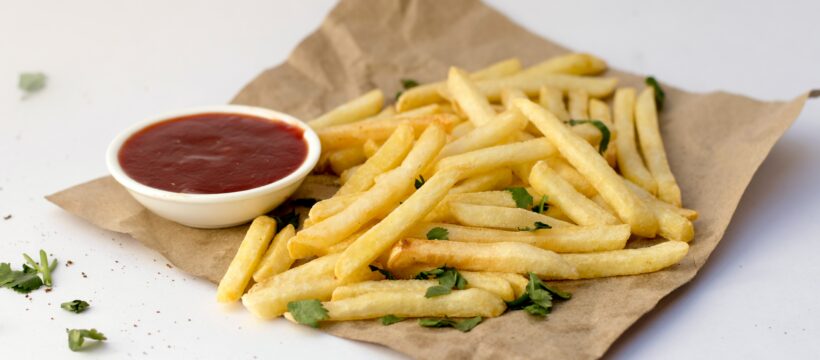A Good Decision? Maybe Not!
In middle school, my daughter brought a friend home one afternoon, and I offered the only snack I had in the refrigerator: leftover fries.
Even when I offered the fries heated and smothered in the divine—ketchup—they snubbed their noses.
You see, the fries weren’t the standard white potato french fries, but healthy rutabaga fries.
Yes, I offered the girls healthy rutabaga fries smothered in ketchup.
Bad decision.
Are you making good decisions every day?
How Do We Make the Right Decisions?
If you turn to the internet, you’ll find everything from the top three Cs for Decisions, a Five-step model, the ninety-ten rule to the eighty-twenty rule. People have designed systems to guide you from everyday living to board-room decisions.
Seems everyone wants to offer steps and rules for making good decisions.
How Many Decisions Do We Make?
How many decisions do we make in a day? An online website posted these figures:
- 35,000 decisions per day per adult
- 7 decisions about food (I’m thinking ice cream and toppings couldn’t classify as a hard decision.)

With all those daily choices, a good decision requires focus to work its way into our already full brains.
What Process Do We Use to Make Decisions?
After reading numerous ‘help’ articles for decision making, I gleaned similar suggestions for the process.
- Gather information.
- Consider the pros and cons.
- Weed out the poor choices.
- Focus on one choice and map out the consequences of the decision.
Consider the four points as a launch pad, but you’re not ready to make that big decision yet. There’s more knowledge to soak in before that key decision is set into action.
Got Time?
- Walk and talk.
Find a trusted friend or mentor and go on a walk. As you walk, talk out loud about the information you’ve gathered and the direction you’re considering. A friend will ask questions and peel back the layers. Help you dig deeper. Talking out loud improves problem-solving.

The friend who shuts up and listens is also a good resource. (Don’t we love a quiet friend!) The process of talking out loud is beneficial, whether or not your friend chimes in.
Walking improves our creativity and increases blood flow to the brain according to Harvard Health. Grab your hiking boots and find a trail. If a friend can’t go, then talk to yourself. Good decision might be a right around the next corner.
Pretend to See the Future
- What’s the future impact?
Of course, we can’t see into the future. But we can certainly unpack a decision enough to predict what consequences the decision may have. (We all want the writing on the wall, but there’s only one instance when someone experienced such a message.)
Don’t stress; not every detail is predictable. Do your best (And keep reading.)
What’s the Cost of the Decision?
Our decisions affect other people and reflect our values. Try to think through how our decisions influence others. For example, let’s talk about my health-food kick and pushing my food choices on two middle schoolers. I ended up with a bigger problem—two hungry girls with nothing satisfactory to eat.
Do Daily Decisions Make a Difference?
How many times have we heard “It’s the little things?” Yes, the small, habitual decisions we make shape our lives. Have you ever gone all in on an exercise program to improve health and wished you’d started sooner?
How about money? Have you ever had to sacrifice to pay off debt or begin setting aside money for a savings account that you wish you’d started long ago?
How about relationships? Ever wish you’d made a different decision?
Yep, our daily choices turn into habits, which affect our future.
Steering our daily choices in the right direction helps set a positive foundation for those unpredictable times when tough choices must be made. Think about it this way—we’ve already built up our good decision-making muscle. Other negative choices don’t have to be weeded out to take the next step, therefore, offering relief to an already overloaded brain.
A Tip for Making Decisions
- Pray.
 Big decisions or small decisions, we all face tough topics—relationships, money, jobs, health. The number one best way to make a decision is to steep that thought process in prayer. As we discussed, we can try to predict future outcomes, but our vision doesn’t extend beyond the moment. Unlike us, God knows our today and our tomorrow. He has given us the freedom of choice but waits for us to consult him. Like a trusted advisor, God is there to guide us.
Big decisions or small decisions, we all face tough topics—relationships, money, jobs, health. The number one best way to make a decision is to steep that thought process in prayer. As we discussed, we can try to predict future outcomes, but our vision doesn’t extend beyond the moment. Unlike us, God knows our today and our tomorrow. He has given us the freedom of choice but waits for us to consult him. Like a trusted advisor, God is there to guide us.
Hard decisions are worrisome; but instead of worrying, we’re instructed to turn to him in prayer.
“Give all your worries to Him because He cares for you.” I Peter 5:7 NLV
How to Make the Best Decision Possible
- Claim God’s promise for wisdom through prayer.
“If you do not have wisdom, ask God for it. He is always ready to give it to you and will never say you are wrong for asking.” James 1:5 NLV
Sounds so simple, but claiming God’s promises is impactful. God promises to give us the gift of wisdom. We encouraged to frame every decision—he won’t chastise us for asking about anything—with a dose of wisdom.
The wonderful part about claiming God’s promise and praying is that it blends the decision-making process. Pray first. Pray all the time. Pray as you process. Pray before you act.
Now you’re ready because you know the critical step—pray for wisdom.
Soak choices in the divine and take the next bite—action.
Action
- Take action.
Sometimes the most work is the decision. Once the hard task of sifting through all the alternatives is finished, a burden lifts and we’re able to direct our energy into action.
How Do We Know We Made the Right Decision?
Joyce Meyer reminds us to check our peace level and directs us to the Bible to read Colossians.
“Let the peace of Christ [the inner calm of one who walks daily with Him] be the controlling factor in your hearts [deciding and settling questions that arise]. To this peace indeed you were called as members in one body [of believers]. And be thankful [to God always].” Colossians 3:15 AMP
If we’ve made a decision with God’s leading, we’ll sense peace.
Decisions turn out better dipped in the divine.
Soak in the divine—God’s divine wisdom.
Learning from the Wrong Decisions
In my opinion, even rutabaga fries taste good because everything tastes better dipped in ketchup. Allow me to prevent you from one headache—don’t serve rutabaga fries to middle-schoolers. The only good result from that calamitous after-school snack turned into an endless source of jokes. The rutabaga-fry decision wasn’t thought out.
 What did I learn? Stock the kitchen with pre-teen favorites.
What did I learn? Stock the kitchen with pre-teen favorites.
Ice cream? Yes, if I could push replay on that day, I’d serve ice cream.
Good decision.
As much diligence as we put into our decisions, sometimes circumstances shift in a different direction, and we have a mistake on our hands. In those cases, gather what you learned and keep striving toward wisdom.
Let’s Talk About Making Good Decisions Every Day
What are the big decisions you’ve had to make or are making right now?
How has prayer helped you?
Can you share an experience when you didn’t pray?
Can you share an experience when you prayed?
It’s a bummer when we make a mistake, but we learn. What mistakes have you learned from?
Resources:
Study the book of Colossians by Julie Zine Coleman
The Best Yes by Lysa TerKeurst




Thank you, Terri, for this helpful article on making good decisions. I have a HUGE one to make and this article helped!
Praying for you, Diana. Thanks for the feedback.